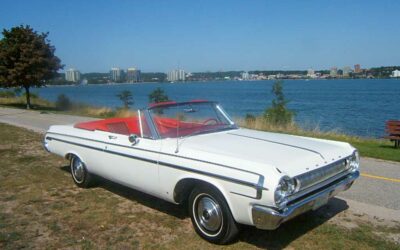
Written by Dave Stewart
Owning a small business can be both challenging yet rewarding in so many different ways. As a small business owner, you get the creative freedom and personal satisfaction to do what you want to do as you’ll be able to work in a field that you really have a passion for. You’ll be able to put your specific skills and knowledge to use, and you’ll gain personal satisfaction from implementing your ideas, working directly with customers, and watching your business succeed.
Many people (whether small business owners or not) often overlook or fail to realize that one hurdle to operating a small business is that the owner must be “jack of all trades”, meaning they need to run and oversee all aspects of the business from marketing to sales, from supply chain management to product development and from recruitment to employee retention and development. With so many things to consider, often one area that a small business owner neglects to consider is that they themselves are integral to the business operating and if they are not able to run the business due to a health issue, the business would be in an incredible predicament!
Can the business survive if the owner is not able to work for several weeks… several months… what about for even a year or two? In most likely scenarios, the extended absence of a small business owner from the daily operations of their business would lead to a large decrease in sales or production, possible shutdown of the operation (whether temporary or permanent) and even in many scenarios, likely financial ruin for the business owner. All of this because of something that was out of the control of the owner… an unforeseen health issue by way of a major injury or illness.
The traditional insurance solution for injury or illness protection has been a disability insurance policy that pays the insured person (whether the owner or an employee) a percentage of their income (usually two-thirds). This monthly payment is to replace their lost income while they are off work so that daily expenses like food, shelter and other living expenses are looked after. However, this traditional approach isn’t a fit for all and (in particular) to small business owners. The reasoning is for small business owners, it is difficult to acquire not only affordable coverage, but the correct amount and type of coverage due to the following reasons:
- Acquiring adequate amounts of individual Disability insurance is hard for small business owners as they generally do not declare all their income & individual Disability insurance is based on a max 67% of declared income. Small business owners usually have the luxury of taking some income out of the business in other ways than paying themselves all their income via their company payroll. The reason that they do this is taxation. Business tax rates are usually lower that personal tax rates, therefore there is a tax advantage for setting up individual compensation as such. However, with disability insurance, you can only get qualified on your declared income with CRA (Canada Revenue Agency), so usually the amount of personal income a small business owners declares is less than what they would truly need to be replaced it they were off work with an injury or illness.
- Also, regarding income, during the first few years or a new business venture, a small business owner likely will not pay themselves a lot of personal income, as much of their income is tied into the business trying to get it off the ground. Many small business owners sacrifice personal income in the early years of the business with the goal of reaping the long-term rewards to the business once it becomes profitable.
- Acquiring individual Disability Insurance is usually quite expensive as it covers your income for up to age 65. No matter if an employee or a business owner, individual disability insurance can be costly as claims can reach the hundreds of thousands if a person is disabled long term. Quite frequently a small business owner isn’t thinking 30 years ahead, they are thinking 2-3 years ahead in relation to their business operation. Instead of purchasing a disability policy costing $150/month that could pay them lost income in 15 or 20 years, they are thinking about using that $150/month for something that can give their business an edge in the present.
To summarize the above points, there is a huge need for some sort of disability coverage for business owners, but traditional Disability Insurance plans can be inadequate in terms of coverage limits and can be unaffordable for short term small business owner’s goals.
However, as stated above there is a huge need for some sort of coverage … especially for small business owners as they are actively generating business revenue and quite often the only one in the business generating revenue.
The Solution- A Business Overhead Expense (BOE) insurance policy
Business Overhead Expense (BOE) is a disability policy for the owner but instead of covering their lost income to potentially age 65, it covers their fixed monthly business expenses for up to 2 years… allows the fixed expenses to be paid and gives the owner time to either recover from the disability, sell the business or restructure the business. Details of this plan are as follows:
- Designed specifically for Small Business owners who actively generate almost all (or all) of the business income (farmers, lawyers, accountants, mechanics, etc)
- Pays the business a monthly tax-free amount if the business owner cannot work due to any injury or illness
- Pays for ongoing “fixed” expenses of the business such as rent, salaries, property taxes, hydro, etc in the event the owner becomes disabled and cannot work
- It ensures the basic fixed business expenses will be paid if the owner is disabled and the business revenue ceases or is drastically reduced. The policy ensures the business will continue to operate even if a disability to the owner occurs
- Benefit period is short- 15 months or 24 months… allows the business owner opportunity to pay the bills and either recover from disability or if looking like a long-term disability- sell the business or restructure the business
- As benefit period is short (15 or 24 months) the cost is much less than a traditional disability insurance policy that can pay to age 65
- Elimination periods available are: 15, 30, 60 or 90 days. The elimination period is the number of days that pass before the payments start. The longer the elimination period; cheaper the price.
- Insurance amount is what your monthly fixed expenses are (or can be lower if desired). The business owner chooses the amount of coverage they want.
Example Quote of a Business Overhead Expense (BOE) disability policy:
34-year-old male mechanic owns his own business with one employee. He has monthly fixed expenses for the business of $3K/month. Declares take home income of $24,000/year.
Business Overhead Expense (BOE) disability policy– for $3K/month tax free benefit paid to the business, with coverage payable for up to 24 months and a 30-day waiting period= cost of $79.30/month
Individual disability policy– Based on declared income of $24,000 he only qualifies for $1,575/month tax free benefit, coverage payable to age 65, with a 30 day waiting period= $143.28/month.
Therefore, he gets more coverage ($3,000 to $1,575) for a shorter period that is $64/month less. The BOE policy may be the better option for this 34 year old mechanic as it is geared to his specific needs… if he is ever off work because of any injury or illness, his business will receive $3,000/month for up to two years so he can either:
- Recover from the injury or illness and the business will survive
- Restructure the business (ex. take on a partner?) for its long-term viability if he will not make a full recovery but still be able to play an active role in the business
- Sell the business if his injury or illness is deemed long term.
Lastly…
Most important thing to consider with a Business Overhead Expense policy is that it buys the business owner time to make the best decision for their business and their own individual future. It is cost effective, provides adequate short term coverage and should be the part of the business plan of any small business owner who is directly responsible for generating most of the revenue for their business. To learn more about a Business Overhead Expense disability policy or any other financial protection for your business please feel free to contact me @ [email protected]
Call Zehr Insurance brokers and see if we can help you with your insurance needs.









